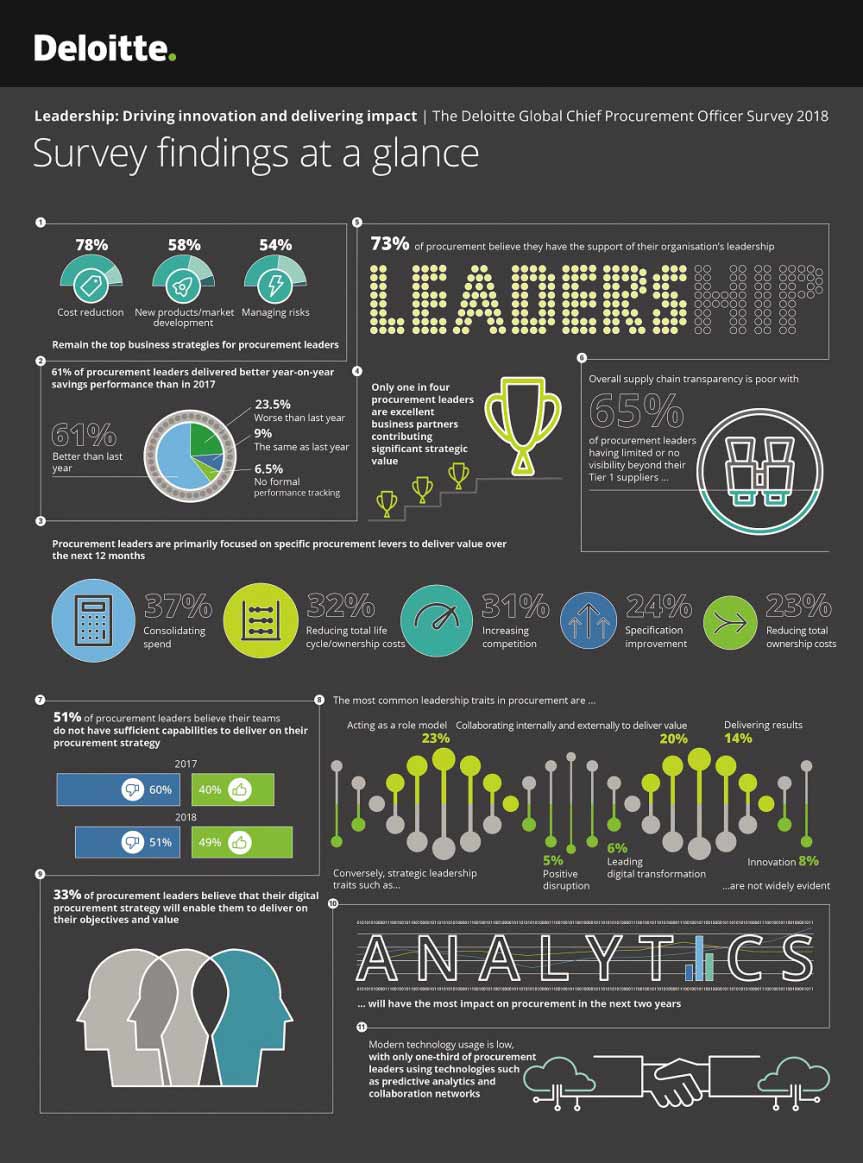
Deloitte, a major stakeholder in audit and professional services, has published the 8th edition of its annual Procurement Officer Survey*. On the agenda: a benchmark of the sentiment in the industry and an insight into the key challenges facing procurement officers today.
Last year, procurement departments were largely successful in making short-term savings and managing major risks to support the development of companies. With global economic growth expected to reach 3.9% in 2018 and 2019 according to the IMF (International Monetary Fund), procurement departments will continue to play a key role in organisations. Deloitte has identified three major challenges facing procurement departments:
Value and collaboration
Procurement departments are continuing to consolidate their strategic role in companies, particularly by aligning business and purchasing priorities, measuring their performance more closely and taking a proactive approach to decision-making. However, one stakeholder seems to have been forgotten — the suppliers. Indeed, the study highlights that there is still leverage to be had from relationships with suppliers. From a global perspective, Deloitte reminds us of the importance of moving from a tactical to a strategic approach, looking at collaborations rather than transactions, and being proactive rather than reactive.
"Overall supply chain transparency is poor with 65% of procurement leaders having limited or no visibility beyond their Tier 1 suppliers … "
Talent and leadership
Talent management is a fundamental factor in addressing current and future challenges facing procurement officers. Deloitte emphasises the clear correlation between stronger leadership, investments in training and improved performance. Therefore, even though spending on training and talent development is down...
"51% of procurement leaders believe their teams do not have sufficient capabilities to deliver on their procurement strategy"
Digital procurement
Digital transformation is a necessary step for companies in order to remain competitive. The study highlights the uncertainty of some procurement directors when approaching new technologies such as artificial intelligence, robotics and blockchain, even though the benefits will pay for themselves with predictive sourcing, automated transactions and proactive supplier management etc.
However, some companies are already leading the way, demonstrated through their exceptional performance.
"Modern technology usage is low, with only one-third of procurement leaders using technologies such
as predictive analytics and collaboration networks"
*The survey was conducted in association with Odgers Berndtson and leverages the testimonials of 504 procurement leaders from 39 countries around the world.








